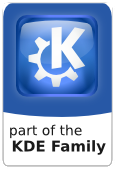O PSL-PI tem por objetivo incentivar o uso e a produção de software livre no Piauí como política de combate à exclusão digital. Acreditamos que a distribuição de conhecimentos proporcionada pelo Open Source/Software Livre tornará nossa sociedade mais justa e próspera, exatamente por dar a todos as mesmas condições de conhecimento e desenvolvimento.
Software Livre é uma grande oportunidade de construirmos uma sociedade produtora de ciência, independente e efetivamente competitiva. Estamos reconstruindo as bases da nossa sociedade, não mais calcados nos braços do Estado, mas sim, amparados pela iniciativa própria, pela auto-determinação. Nós somos capazes de nos auto-governar. Somos capazes de construir uma sociedade efetivamente Livre. Esta é a essência do PSL-PI.
O PSL-PI é formado pela articulação de indivíduos que atuam em instituições publicas e privadas, grupos de usuários e desenvolvedores de software livre, empresas, governos ou ONGs, e demais setores da sociedade. O importante é a consciência e disposição para propagar o uso de software livre e a cultura colaborativa nas diferentes esferas da sociedade.
Lucas M.A.C.: Instalando o Adobe AIR no Ubuntu 11.10 64 bits
6 de Novembro de 2011, 0:00 - sem comentários ainda~$ dpkg-deb -x adobeair.deb adobeair
~$ dpkg-deb --control adobeair.deb adobeair/DEBIAN
~$ sed -i "s/i386/all/" adobeair/DEBIAN/control
~$ dpkg -b adobeair adobeair_64.deb
~$ rm -rf adobeair
~$ sudo dpkg -i adobeair_64.deb
Ou, simplesmente, execute o download do .deb AQUI! :)
Espero ter ajudado!
;-)
Lucas M.A.C.: Instalando o Adobe AIR no Ubuntu 11.10 64 bits
6 de Novembro de 2011, 0:00 - sem comentários ainda~$ dpkg-deb -x adobeair.deb adobeair
~$ dpkg-deb --control adobeair.deb adobeair/DEBIAN
~$ sed -i "s/i386/all/" adobeair/DEBIAN/control
~$ dpkg -b adobeair adobeair_64.deb
~$ rm -rf adobeair
~$ sudo dpkg -i adobeair_64.deb
Ou, simplesmente, execute o download do .deb AQUI! :)
Espero ter ajudado!
;-)
Filipe Saraiva: 15 Years of KDE: KDE and I
2 de Novembro de 2011, 0:00 - sem comentários ainda
I’m a little late, but always is time to celebrate. ![]()
My history with KDE blends with my story with Linux. The first time that I saw a computer with a Linux distribution was not long ago. In 2005, I had just enroll in computer science in UFPI, and in the laboratory had machines with a Debian-based operating system created by students of the course: the Kuia Linux. The ‘K’ said it all – was a system with KDE.
I was impressed at how that system was beautiful, modern, attractive … and how it was unlike anything he had ever seen.
Time passed and I became familiar with Linux, I learned, rightly and wrongly, as a good beginning in any area. The following year, 2006, bought the first computer for our home. We purchased the machine without operating system. At home, I installed Kurumin, one of more loved Brazilian Linux Distributions, and that was a real milestone for a generation of Linux users. I have a real affection for Kurumin.
I was using Kurumin when I realized, of course, that Linux was something drew attention me, but largely responsible for this feeling in me was KDE.
Time passed, for one reason or another I changed the Linux distribution, but KDE still there, going strong. Sometimes I flirted with other desktop environments, but soon I returned to KDE. It was stronger than me. ![]()
2009 was the decisive year for me to begin to participate actively in the KDE community. We take Sandro Andrade to give a lecture in Teresina about Google Summer of Code and KDE. It was a year in the Brazilian community was regrouping, many groups had emerged in the country and the number of developers was growing.
It was then that, timidly, I began to study libraries and code from some KDE software. Still very lost, groping here and there that huge mass of information on kdelibs, modules, related technologies, Qt, and more.
Over time I approached the educational software, the KDEedu, with special interest in mathematical software. It was a wonder, because in my academic life in computer science I always worked more with the part of combinatorial optimization and less with software engineering.
Today, after a few years since, I have some contributions [1] [2] to KDE code. I’m on track to become, increasingly, a good developer to the community – and I know I still have to work hard for it. I travel on Brazil doing lectures and presentations on KDE. I relate to people around the world who use their knowledge and energy to build an excellent computing environment, which follows the principles of free software and, therefore, can become real the slogan of California hacker movement: computer to the people!
So, I just got even that thank this vibrant community for all that you do. To Matthias Ettrich, by e-mail 15 years ago inviting developers to join the Kool Desktop Enviroment; to all the developers who responded to this call, any time these last 15 years; to the sysadmins, which maintains the structure for nearly 3,000 KDE developers work and communicate; to the designers, that make KDE a nice and pleasant environments; to the translators, who maintains KDE available for more than 65 languages; to the “expansionists”, which are leading to KDE to BSD, Haiku, Windows, Mac, netbooks, mobile, tablets; to non-technical personnel, they do phenomenal work; and also to the various linux distributions packagers, which prepare the KDE with which millions of users will interact and, maybe, not even realize that they’re playing there is KDE, not the “Linux”. ![]()
Happy 15 years, KDE! I am very happy to be part of the family!



